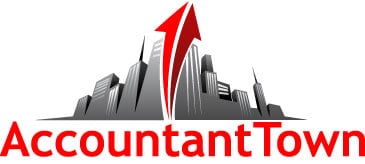Payroll Accountant Careers Guide
When deciding on what type of a career path you wish to follow in the accounting field, one must compare the different opportunities.
Keeping track of payroll payments for employees is the responsibility of a payroll accountant. Consequently, payroll accountants work at many levels, requiring different degrees and experiences. The minimum competency requirement for payroll accountants is to possess a basic understanding of mathematics and accounting principles; however, many people hold bachelor’s degrees in accounting in addition to their associate degrees. There are also professional certifications that can enhance a payroll accountant’s career.
The very first step in becoming a payroll accountant is to try to find a graduate program offering courses in payroll accounting. Many universities and colleges have programs focused on payroll accounting, and they provide a variety of courses from which to pick.
An excellent program will offer courses in:
- Auditing
- Management
- Federal Government Assistance
- Payroll Processing
- Bookkeeping
In order to get the knowledge to start working as a payroll accountant, you can attend any school offering in payroll accounting or general accounting. Some colleges or universities will provide basic education courses that can be taken one on one at your convenience, while others require that you go to classes part-time along with receiving official credits through certificates or continuing education programs. The majority of states will require that you spend time working after you earn your degree if you will to receive your certified public accountant (CPA) classification or licensing.
Some universities and colleges that offer courses in payroll accounting also have several certificate programs. These programs are typically available in cooperation with a variety of professional associations which offer testing and certification through the schools. Certificates can be earned in as little as one year in most cases, though some will require specific education for those taking the tests. By taking courses in payroll accounting, you can complete the essential prerequisites to sit for the accreditation examination for the Certified Payroll Professional certification.
Once you have actually obtained your accounting degree, it’s time to pick a graduate program that suits your particular requirements. There are lots of graduate schools that provide accounting degrees. It’s crucial that prospective accounting professionals research all of the schools in their area and find out what their expertise is prior to choosing. You’ll want to find a school that has great credibility, tuition rates that match your budget, and access to teachers who are experienced in the field.
Graduates of online accounting degree programs will be fully equipped to work in a competitive field. Online learning enables accountants to work at their own speed to obtain the certifications they need to be successful.
Tasks of a Payroll Accountant
The primary function of a payroll department is to process payment to staff members. Thus, depending on the size of the business or company, a payroll accountant’s tasks can vary from basic workplace obligations to constantly working with multiple payroll accounts. However, the preparation of ledger entries with earnings and reductions is the basis of this position, as the American Payroll Association (APA) describes (www.americanpayroll.org).
According to the U.S. Bureau of Labor Statistics (BLS) and the APA, a few of the duties anticipated to be performed by a payroll accountant include:
- Make sure incomes are correct and provided on time
- Compute income and overtime
- Prepare tax reports
- Update new hires and terminations in the payroll system
At higher levels, payroll accounting professionals may need to carry out internal audits as well as prepare details for external audits. Another significant component of this position is the adherence to federal, state, and regional tax laws.
Skills Required for a Career as a Payroll Accountant
Payroll accounting professionals need to master specific core proficiencies to master their profession. While some of these competencies may come more naturally to some people than others, you can obtain these abilities through your studies and internships.
1. Detail-oriented
Payroll accounting software applications can assist in catching errors, but all accounting jobs require a strong eye for detail and accuracy.
2. Organizational Skills
Payroll accounting professionals should have the ability to complete and send reports in a prompt manner.
3. Mathematics Skills
Strong math abilities are a need for prospective accountants of all kinds. Payroll accounting professionals work with numbers daily, using specialized software applications to carry out large computations.
4. Multi-tasking Ability
Frequently, payroll accounting professionals need to work on multiple projects and stick to a number of due dates at once. Effective specialists are adept at managing their time and attention.
Accounting made easy, for FREE!

Access the contact form and send us your feedback, questions, etc. We are always welcome to help someone out. You can also contact us if you wish to submit your writing, cartoons, jokes, etc. and we will consider posting them to share with the world! The Facebook and LinkedIn groups are also good areas to find people interested in accounting like yourself, don’t hesitate to join as everyone of all levels are welcome to become part of the community.
